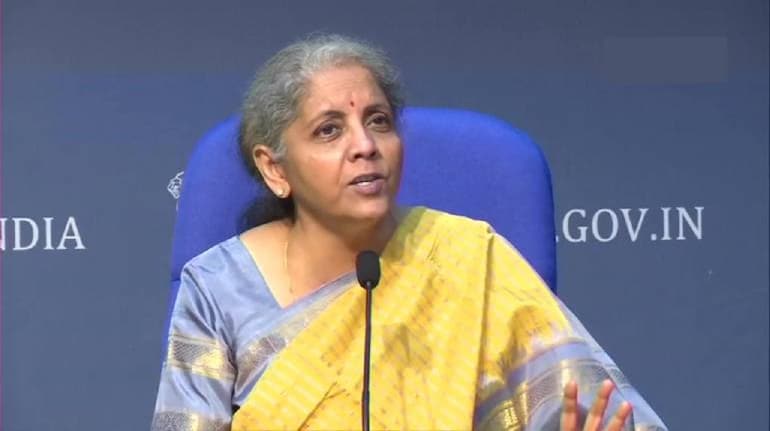The key priorities for the India-UK Economic and Financial Dialogue on the Indian side have been flagged as cooperation in IFSC GIFT City, investment, insurance and pension sectors, fintech and digital economy, and mobilising affordable and sustainable climate finance
London: India offers a compelling growth opportunity for foreign banks, Finance Minister Nirmala Sitharaman told investors in the UK.
Sitharaman’s remarks came as she chaired an India-UK Investor Roundtable in London, attracting around 60 UK investors representing various pension funds, insurance companies, banks and other financial institutions.
According to the Ministry of Finance, the high-level roundtable on Tuesday evening outlined the priorities of the government for enabling sustained economic growth and investment opportunities, with the policy support that is shaping “New India”.
It highlighted the efforts being made by the ministry to pursue process and governance reforms to reduce compliance burden and ease regulation for facilitating an enabling environment for business and investments.
“India offers a compelling growth opportunity for foreign banks and the government of India is actively encouraging foreign investment in the banking sector,” Sitharaman told the gathering.
With an expanding middle class and strong and stable policy environment, the Union Finance Minister said that India is set to become the sixth-largest Insurance market by 2032 with the expected growth at 7.1 per cent CAGR from 2024-2028 — one of the fastest growing insurance markets among G20 countries, the Ministry of Finance readout said.
Sitharaman also informed the investors that the Indian securities market is among the first major markets to fully adopt the T+1 settlement, as early as 2023, and India’s market capitalisation stands at $4.6 trillion, currently ranked fourth globally.
“The Union Finance Minister spoke at length about India’s maiden International Financial Services Centre GIFT-IFSC — an offshore zone that is endowed with an enabling ecosystem with considerable tax exemptions, skilled manpower, foreign currency transactions, and strategic geographical location,” the ministry noted.
The gathering was informed that as of March 2025, more than 800 entities across banks, capital markets, insurance, fintech, aircraft leasing, ship leasing, and bullion exchange, among others have been registered with the IFSCA.
Underlining India’s digital economy as a significant contributor to its economic growth, accounting for 11.74 per cent of the GDP in 2022-23, Sitharaman informed the participants that India “stands third globally in terms of the number of homegrown unicorns”.
She flagged India as home to a strong fintech ecosystem, driven by a large tech-savvy population, supportive government policies, and an innovative startup ecosystem.
The sector has witnessed a rapid surge in fintechs over the last five years, as is evident from an astounding 87 per cent adoption rate against the global average of 64 per cent and 15 per cent share of global fintech funding.
“The participants, drawn from including key management personnel from across the UK financial ecosystem, covering pension funds, insurance companies, banks and financial services institutions, shared their views on the reforms pursued by the government and gave feedback and observation on the existing policy framework. They also spoke about their keen interest and commitment for a deeper and broad-based investment collaboration between the UK and India,” the ministry said.
The 13th EFD(Economic and Financial Dialogue) is a significant bilateral platform between the two countries that offers opportunities for candid engagement at minister-level, officer-level, working groups and between the respective regulatory bodies in various aspects of financial collaboration, including investment matters, financial services, financial regulations, UPI interlinkages, taxation matters and illicit financial flows, the statement notes.
The key priorities for the EFD on the Indian side have been flagged as cooperation in IFSC GIFT City, investment, insurance and pension sectors, fintech and digital economy, and mobilising affordable and sustainable climate finance.

